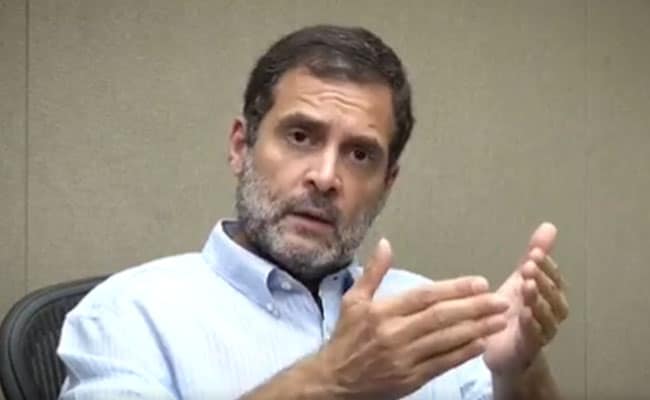Congress is now a junior partner in a coalition, while the regional parties are getting stronger in their respective states.
India has changed and is changing rapidly. As our democracy matures with the passage of time, a strong national opposition is still missing. It is important to have an effective opposition to make democracy work for the people. In fact, it plays an inevitable role in governance. A constructive opposition can make sure that the ruling government works in the interest of the country, help it course correct its policies, help accelerate the speed of governance, curb chances of corruption, thus contributing to nation building.
As the Congress weakens, India is missing a strong credible national opposition both inside and outside of Parliament. Over 60 years, the Congress ruled the country and produced some great leaders. Unfortunately, the grand old party is now facing the biggest challenge of the century with the least parliamentary presence. Without a strong leadership and very few states in command, many young and senior leaders are either leaving the party or are not in action. This is an existential crisis for the Congress. The Congress is still considered as the main national opposition party against the BJP, but in many states the Congress is now a junior partner in a coalition, for instance in Tamil Nadu, Bihar and Maharashtra.
While at the same time regional parties are becoming stronger in their respective states. In Bengal, Mamata Banerjee and her Trinamool Congress won an extremely challenging election with a good margin. M.K. Stalin of the DMK won and came back to power in Tamil Nadu. Sharad Pawar still calls the shots in Maharashtra. In Telangana and Andhra Pradesh, national parties like the BJP and the Congress are not electorally significant. In Uttar Pradesh, the BSP and SP may be weak, but these family-owned parties have more prominent voices and are stronger than the Congress. In Bihar too, the Congress is junior to Lalu Yadav’s RJD. Once a major national party, the communist parties are now reduced to Kerala and have become irrelevant nationally.
Since this is the political reality of today, who will lead a national opposition? Most of these regional leaders have national aspirations and some of them don’t like to be with the Congress as a junior partner. While Stalin may not be a contender to lead from the front, Mamata considers herself to be the most prominent and successful leader to take on the BJP and Narendra Modi. A veteran and real political Chanakya, Sharad Pawar, a strong man in Maharashtra who has a say in the UPA too, is in the fray to lead the Opposition. Most of these prominent Opposition leaders are not ready to work with Rahul Gandhi.
Hence the question is, will these regional players come together with the Congress to create a strong national front against the BJP? Or will the Congress finally concede to Mamata or Pawar and support them to lead? Is the Congress now ready to be a junior partner like it is in many other states nationally? While the answers to these questions may not be given quickly or readily, one thing is clear, Narendra Modi stands tall even after 7 years in power, without any major and strong opposition. But is this good for the country? In PM Modi’s words, “The role of an active, credible and strong opposition is very important in parliamentary democracy.”
While the UP, Punjab, Goa and Uttarakhand elections are just a few months away, the Opposition in each of these states is still divided both as parties and within the parties. While for Congress, Punjab is a nightmare with Amarinder out, a disturbed Sidhu playing the spoilsport and Channi trying to take control of both the government and the party. Coming back to power for Congress which was supposed to be a cakewalk seems to be tougher now. The Congress in UP, despite Priyanka trying to be relevant with her off and on presence in the state is still too far in the fray. Congress seems to have lost the hunger for power and the appetite to win elections with any serious work both at Parliament and in states.
Akhilesh’s SP is merely a UP party with hardly any say in national politics, with his father Mulayam slowly fading away from active politics. With Lalu and Mulayam leaving active politics, their children have not yet been able to replace them in the national opposition front. It is going to be an interesting journey for both Tejashwi and Akhilesh. How long will they be relevant in politics without being in power and the resources which they used to enjoy once? Mayawati is hardly visible, however the BSP still has traditional pockets of vote in North India. But is that sufficient to win elections? In the present situation
AAP and Arvind Kejriwal, despite very aggressive plans for a pan India expansion have not succeeded much. The upcoming elections in Punjab and Goa will be testimony for Kejriwal and his kind of politics. If AAP is able to succeed even in one of these states, that will be a huge success for Kejriwal; however becoming a national alternative to BJP and Modi will still be far. With most Opposition parties being strong regionally, a national alternative or a strong Opposition seems to be a distant dream for the time being.
The Opposition parties are aware of PM Modi’s popularity and that unless they come together they will never be capable of taking on the mighty Prime Minister. But the question remains: Who will bell the cat?
P.K.D. Nambiar is a political analyst and marketing strategist.

